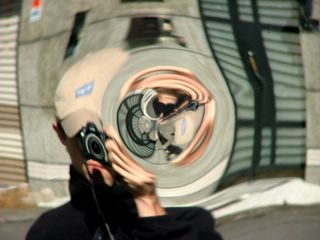Alison Krauss: We Hide and Seek
Now, ten years older, with a broader range of musical appreciation (aka - bands other than Guns n' Roses are admittedly listenable), I have come to realize that Alison Krauss is about as good as it gets in terms of beautiful country-bluegrass music. At times she still is lullaby-slow and beautiful, and might induce a nap or two. But she can sing like no other and plays a mean fiddle. And buried in the middle of disc two of her live CD is one of the best songs I've ever heard.
"We Hide and Seek" is driving music at it's finest - a sunny day, all-instrumental fiddle and banjo song. It is dynamic, starting out with the central, hypnotic, mandolin riff and banjo line, adding lead instruments and pulling them away, streaming through the song like a spring wandering down the mountainside, sometimes a steady trickling and sometimes a full-blown waterfall. The blistering solos characteristic of bluegrass are showcased in partnership, trading between lead mandolin, banjo, steel guitar, and Alison's awesome fiddle. The peekaboo of instruments inspires the title of the song and depicts the resulting electric atmosphere enhanced by the spontaneous cheers of the live audience. The instrumental arrangement forces the listener to imagine unsung words, and I hear a spacious melody of bare-foot blue skies, and barefoot bright spring sunshine sublimity.
You're missing one of life's sweetest pleasures if you don't make a spot for "We Hide and Seek" on your favorite mix disc, somewhere near the Allman Brothers "Jessica" and Freddy Jones Band "Already in a Daydream." Pop it in the dashboard on a perfect spring morning, roll down your windows, call in sick, and make a beeline for the country, savoring the absolute joy found only in the perfect song and an open highway!
